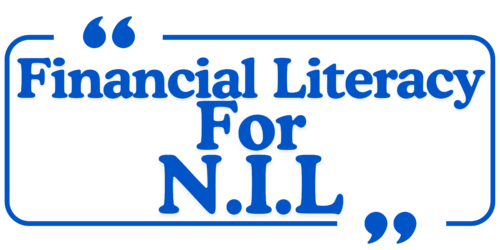NIL Taxes Education Curriculum
As student-athletes begin to earn income through NIL (Name, Image, and Likeness) deals, it’s essential they understand the tax implications of this new financial responsibility. Unlike traditional scholarships, NIL income is taxable, and failing to report it properly can lead to penalties, interest, or even legal trouble.
This curriculum is designed to help student-athletes grasp key tax concepts, stay compliant with IRS requirements, and plan wisely for the future. Through real-world scenarios and hands-on activities, athletes will learn how to manage their income, track expenses, and work with professionals to protect their finances.
Module 1: Introduction to Taxes and NIL
Learning Objectives:
Understand what constitutes NIL income
Learn why NIL earnings are subject to taxation
Identify the types of NIL compensation and how they’re taxed
Topics Covered:
What is NIL income? (cash payments, gifts, endorsements, services, barter deals)
Overview of taxable vs. non-taxable income
The IRS and student-athletes: understanding your tax obligations
Activities:
Quiz: Identify different NIL activities and whether they are taxable
Discussion: What happens if you don’t report your NIL income?
Module 2: Income Types and Tax Forms
Learning Objectives:
Identify the different tax forms athletes may receive (1099-NEC, W-2, etc.)
Understand self-employment income vs. employee income
Learn how to read and interpret tax documents
Topics Covered:
1099-NEC: Independent contractor status for most NIL deals
W-2: Employee income (rare, but possible)
Cash apps and Venmo: Why payments here still count as income
Activities:
Tax Form Lab: Review sample 1099-NEC and identify key data points
Simulation: Classify NIL income received through various scenarios
Module 3: Deductions and Expenses
Learning Objectives:
Understand what expenses can be deducted from NIL income
Learn how to track and categorize business-related expenses
Explore tools to stay organized for tax season
Topics Covered:
Common deductible expenses: travel, meals, gear, phone, training
Receipts and record-keeping: why documentation matters
Business vs. personal expenses: drawing clear lines
Activities:
Deduction Matching Game: Match expenses to IRS-approved categories
Expense Tracking Sheet: Set up a digital or physical system to log NIL-related costs
Module 4: Estimated Taxes and Withholding
Learning Objectives:
Learn when and how to pay estimated taxes
Understand how to calculate quarterly payments
Discover how failing to pay can result in IRS penalties
Topics Covered:
Why athletes often need to pay taxes quarterly
How to calculate your estimated payments
Online tools and apps to help with estimated tax filing
Activities:
Estimated Tax Calculator: Use a worksheet to estimate your quarterly payments
Timeline Building: Mark tax deadlines and payment due dates on a calendar
Module 5: Working with Tax Professionals
Learning Objectives:
Know when and how to find a tax advisor or CPA
Understand what to bring to your first tax appointment
Learn the benefits of professional guidance vs. DIY filing
Topics Covered:
What to look for in a tax professional
Red flags: how to avoid tax scams and bad advice
Organizing your NIL financial records for tax season
Activities:
Role Play: Prepare a checklist of documents for a CPA meeting
Research Exercise: Compare tax software vs. hiring a professional
Module 6: Long-Term Tax Planning and Financial Literacy
Learning Objectives:
Understand how taxes affect long-term financial planning
Learn strategies to lower your tax liability legally
Explore saving for retirement and investing as a self-employed individual
Topics Covered:
Self-employment taxes and setting up an LLC (when applicable)
Roth IRAs and Solo 401(k)s: investing for the future
Creating a NIL-specific savings and tax withholding system
Activities:
Scenario Planning: What happens to your tax liability if you earn $5K vs. $50K?
Goal Setting: Map out a savings strategy for next year’s tax bill
By the End of This Curriculum…
Athletes will:
Know how to report NIL income properly
Be able to estimate and pay taxes on time
Understand deductions and how to organize finances
Feel confident about working with a CPA or tax professional
Build strong habits that will serve them well into their professional careers
